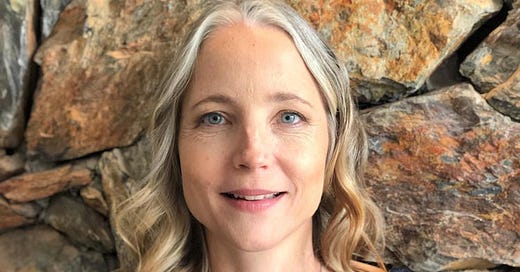Driving Innovation for Inclusion – Irene Arias Hofman, CEO of IDB Lab
This article is part of Fintech Leaders, a newsletter with over 6,400 dreamers, entrepreneurs, investors, and students of financial services. I invite you to share and sign up here: Substack | LinkedIn Newsletter
I sat down with Irene Arias Hofman, CEO of IDB Lab, the innovation laboratory of the Inter-American Development Bank Group, the leading source of development finance for Latin America and the Caribbean. The purpose of IDB Lab is to drive innovation for inclusion by supporting early-stage entrepreneurial solutions capable of transforming the lives of vulnerable populations.
Listen to the full interview --> Spotify | Soundcloud | Apple Podcasts

Irene has had a successful career focused on mobilizing capital for impact investing through financial institutions. Prior to her current role, she worked for 20 years at the IFC, the private sector arm of the World Bank, where she managed the Financial Institutions Group and the $16 billion portfolio of the Latin American region.
Recognizing the transformational power of the digital revolution, Irene’s focus has always been on innovation, technology, venture capital, and organizational development. She’s particularly interested in supporting creative and modern solutions to address financial inequality and reminded us that modern technologies unlock new possibilities but also require new ways of thinking and getting rid of legacy mentalities.
Taking Risk and Putting Smart Capital to Work
Irene joined the IDB Lab in January 2018 with the mandate to take more risks and put smart capital to work in early-stage startups. Over the last few years, the region has seen a number of success stories, but Irene’s team seeks to facilitate exponential growth of a new wave of tech-enabled companies. Her team of 90 professionals is spread out across Washington DC and all 26 countries in Latin America. Through this extensive web of highly trained professionals, they seek to connect with local entrepreneurs and be as plugged-in as possible to the local entrepreneurial ecosystems. Irene is also proud to have an extremely diverse team, comprised not just of investing professionals with MBAs, but of operational experts with deep expertise in a myriad of industries. Additionally, Irene tells us that the most important learning from her time as IDB Lab CEO has been to recognize that they alone cannot cover the whole market, but instead have to partner with other best-in-class institutions from around the world.
The Future is Green and Digital
Although the COVID crisis has been and continues to be a very challenging event for the region, there are some silver linings to come out of it. In Irene’s own words, “The future is green and digital (…) We believed that before the COVID crisis, but I think this has generated that awareness everywhere else”.
COVID has reinforced the need for governments and organizations to invest in connectivity and digital skilling. In order to unlock the full potential of the entrepreneurial talent in the region, there has to be a very deliberate agenda to promote a digitally inclusive society and there is no other investor better positioned than Irene to help drive this conversation with the government. As a multilateral institution, they sit at the intersection of innovation and government, and the IDB works closely with every administration in the region to inform regulators and legislators of up-and-coming technologies while helping shape forward-looking legislation. For highly regulated industries like fintech, this can be particularly helpful.
Fintech’s Road Ahead
The fintech industry currently represents around 25% of the Latin American entrepreneurial ecosystem. Yet, Irene is convinced we are in the early days of fintech and the sector has a lot of untapped potential. She’s fascinated by the growth of sectors like payments and credit, and expects some consolidation to take place in these verticals. However, areas like InsureTech or SME-focused fintech are just getting started and Irene is looking forward to supporting the most innovative startups in these areas. Finally, some of the largest fintech companies in Latin America didn’t start out with a financial services angle, but instead as marketplaces serving other verticals. This trend is expected to continue and in the future, every company could have the possibility to become a fintech company.
Listen to the full interview --> Spotify | Soundcloud | Apple Podcasts
Miguel Armaza is Co-Host of the Wharton Fintech Podcast and Co-Founder of Gilgamesh Ventures, a seed-stage investment fund focused on fintech in the Americas.



